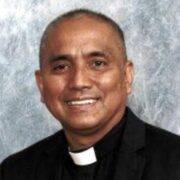THE judge in last Sunday’s (October 16) parable on prayer and the Pharisee in this Sunday’s (October 23) Gospel had a similar attitude. They were both arrogant toward “the rest of humanity.”
While the judge neither feared God nor respected any human being, the Pharisee felt superior over the rest of humanity by saying, “O God, I thank you that I am not like the rest of humanity—greedy, dishonest, adulterous—or even like this tax collector.”
The attitude of superiority over others and self-righteousness continue to exist in people’s minds today. We might have thought that we have progressed as a society in embracing each other’s differences, whether of color, race, gender, sexuality, or economic status, but we realize that we seem to have regressed in this matter. Inequality, discrimination, and racism are still around us.
We need to look at ourselves. As one of my family members recently shared, “If we examine ourselves thoroughly, we’ve all said or thought of racist remarks. We’re all guilty of prejudice against other people.” We might deny it, but it’s true. In one way or another, we have demonstrated an attitude of superiority and self-righteousness.
So how do we approach this critical commentary on human attitude?
First, we must be humble—to accept that we’re guilty of this sin. It doesn’t help to deny it. It’s because we are products of cultural or family behaviors and mindsets. For example, some of us grew up looking at other people as inferior instead of associating with them graciously and openly.
Hence, we must examine our biases and reflect on where they originated. It helps to ask ourselves this question: What messages did I receive as a child about people who are different from me?
Second, we must appreciate and learn about other people’s cultures and giftedness. That means being “curious” about other people’s customs, traditions, and backgrounds and acknowledging their beauty and goodness. We need to engage with different cultures and learn about them.
The United Nations urges educators to teach students to recognize behaviors that may reinforce racism and celebrate cultural diversity.
Third, we need to engage as a community and church to be more welcoming to others and fight against racism, injustice, and inequality. This means not merely tolerating our differences but engaging with one another as members of our communities, churches, and citizens of this world. As Antonio Guterres, the present Secretary-General of the United Nations, states: “Whenever we see racism, we must condemn it without reservation, without hesitation, without qualification.”
Our popes condemned racism. Pope St. Paul VI said, “It is inconceivable for those who accept the Gospel message to deny fundamental equality in the name of the alleged superiority of race or ethnic group. Pope St. John Paul II also mentioned racism as “a sin that constitutes a serious offense against God,” while Francis, our present pope, has stated that “we cannot tolerate or turn a blind eye to racism and exclusion in any form.”
As a parish, we can implement our new vision statement – Joyful, welcoming, and faith-filled, we are the Body of Christ on our journey to eternal life with God – by engaging in dialogues on how to fight racism and all forms of discrimination, prejudice, and superiority complex.
* * *
The opinions, beliefs and viewpoints expressed by the author do not necessarily reflect the opinions, beliefs and viewpoints of the Asian Journal, its management, editorial board and staff.
* * *
Fr. Rodel “Odey” Balagtas is the pastor of Incarnation Church in Glendale, California.






